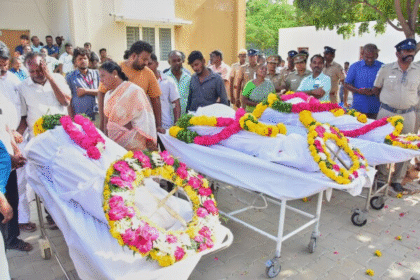Maharashtra Adds 4th CAP Round for 2025 Engineering Admissions to Reduce Costly Private College Burden
Maharashtra Adds Fourth CAP Round for Engineering Admissions: Major Step Towards Affordable and Transparent Higher Education
In a significant policy reform poised to reshape the landscape of technical education in the state, the Maharashtra government has announced the introduction of a fourth round to the Centralised Admission Process (CAP) for engineering degree courses. This development, which will come into effect from the upcoming academic year, marks a pivotal moment in the effort to enhance accessibility, affordability, and transparency in the engineering admissions process.
The move is strategically aimed at curbing the growing dependency on costly private and management quota seats, which often leave students and families burdened with exorbitant expenses. With this additional CAP round, students will have greater opportunities to secure government-sanctioned seats and avail scholarship benefits, thereby reducing the financial pressure traditionally associated with engineering education.
Expanding Access to Government-Backed Seats
Higher and Technical Education Minister Chandrakant Patil elaborated on the initiative, stating, “Just like in the polytechnic admission process, we aim to bring 70–80% of engineering admissions under CAP. This ensures greater equity and access to government-backed benefits for students.”
By expanding the CAP rounds, the government aims to democratize access to engineering education. The fourth round offers additional chances for students who may have missed out in earlier rounds or whose preferences were not met. This extension also counters the issue of merit-based seats being blocked early in the admission cycle by high-ranking students who sometimes keep multiple options open, thereby limiting availability for others.
Revised Guidelines for Seat Allotment
Vinod Mohitkar, Director of the Directorate of Technical Education (DTE), provided insights into the new guidelines that accompany this expanded CAP structure. The revised rules mandate more decisive seat acceptance by students based on their preference rankings:
- In Round 1, if a student is allotted their first preference, they are required to confirm it immediately.
- In Round 2, if the seat falls within their top three preferences, confirmation is mandatory.
- In Round 3, students must accept any seat within their top six choices.
These rules are strategically designed to prevent high-ranking candidates from blocking multiple seats, which has long been a problem, leading to delays and uncertainties in the admission process. The government aims for a more streamlined, fair, and efficient allocation of seats through these regulations.
Curbing the Influence of Costly Private Admissions
A core objective behind this reform is to limit the need for students to resort to private admissions, which are often cost-prohibitive. According to education analysts, many aspirants settle for management quota or non-CAP seats due to the limited rounds of government counselling, despite being eligible for government seats. This not only inflates education costs but also narrows the demographic that can realistically pursue technical degrees.
With the addition of the fourth CAP round, more students from middle- and lower-income families will be able to participate in the centralised process, benefiting from merit-based admissions and state-sponsored scholarships.
Fee Structure Reforms and NRI Quota Oversight
In parallel with the CAP reform, the state government will also allow colleges to charge significantly higher fees for non-CAP admissions, including management and NRI quota seats:
- Management quota seats may cost up to three times the standard tuition fee.
- NRI quota seats could command fees as high as five times the regular amount.
The government also plans to implement stricter regulations on the allocation of NRI quota seats under the Income Tax Act and the Guardians and Wards Act, ensuring that only genuine and eligible candidates benefit from these seats. This move is intended to clamp down on misuse and ensure fairness in the process.
Enforcing Transparency Through Digital Integration
To bolster transparency, the Maharashtra government will now require all institutional quota and leftover seat admissions to be conducted entirely online. Colleges will be mandated to:
- Publish lists of eligible candidates.
- Display merit rankings.
- Share comprehensive admission schedules.
These details must be made publicly available on institutional websites. This will empower students to make informed decisions, track their application status in real-time, and reduce instances of corruption or opaque seat allotments.
Additionally, the Common Entrance Test (CET) Cell has been instructed to enable students to opt for management quota seats during the initial form-filling process. This means that colleges will have to process these applications based strictly on merit, ensuring that personal biases or discretionary practices are minimized.
Government’s Commitment to Equitable Access
Minister Patil emphasized that these changes are rooted in the government’s commitment to ensuring fair access to higher education for all. “In several cases, college managements have been denying admissions without justification. This step will ensure fair access for all interested and eligible students,” he said.
An official notification detailing the full scope of these reforms, along with implementation timelines and compliance instructions for colleges, is expected to be issued shortly.

Challenges and Implementation Concerns
Despite the ambitious scale of the reform, several challenges remain:
- Administrative Preparedness: The digital infrastructure must be fully ready to handle increased traffic and student data securely.
- College Compliance: Ensuring that all institutions adhere strictly to the online publication and merit ranking norms will require continuous monitoring.
- Awareness Among Students: The success of this reform also hinges on student and parent awareness. The government and colleges must engage in outreach programs to educate stakeholders about the new system.
Education experts have welcomed the initiative but cautioned that implementation must be flawless for the reforms to achieve their intended impact.
Reactions from Students and Parents
Students, especially those from rural areas and economically weaker sections, have expressed relief. “Last year I had to consider a private college because I didn’t get through the third round, even though my CET score was decent. With one more round, I’ll have more chances,” said Ramesh Patil, a CET aspirant from Jalgaon.
Parents too are hopeful. “We spend so much on coaching and travel, and still end up facing high tuition fees in private colleges. This reform gives us a fairer chance,” said Manisha Kulkarni, whose daughter aims to pursue engineering in Pune.
Voices from the Academic Community
Academicians see this as a progressive and necessary reform. Dr. Anil Wagh, an education policy researcher, noted, “Adding a fourth round brings Maharashtra closer to states like Tamil Nadu and Karnataka, where more robust counseling processes help students avoid predatory private admissions.”
Others suggest that more CAP rounds and digital integration should be complemented by improvements in college infrastructure and faculty training to enhance the quality of education.
Comparative Perspective: Other States’ Models
In Tamil Nadu, for instance, the Tamil Nadu Engineering Admissions (TNEA) process already includes multiple counseling rounds, and the state has integrated its admission system with real-time seat tracking dashboards.
Similarly, Karnataka’s COMEDK and KCET processes offer extensive rounds and transparency tools that reduce pressure on students. Maharashtra’s move brings its model in alignment with best practices across the country.
Toward a More Equitable System
This CAP reform reflects a growing national realization that education access must not be compromised by economic disparity. As India pushes for greater Gross Enrollment Ratios (GER) in higher education, especially in STEM fields, reforms like these play a vital role.
The Maharashtra government’s move is expected to boost the credibility and efficiency of the engineering admission process, benefiting lakhs of students annually. If successfully implemented, it could serve as a blueprint for other states looking to streamline technical education access.
As the academic year approaches, all eyes will be on how colleges and students adapt to the changes. The fourth CAP round is more than a policy adjustment; it is a statement of intent – that education must be inclusive, transparent, and affordable for all.








